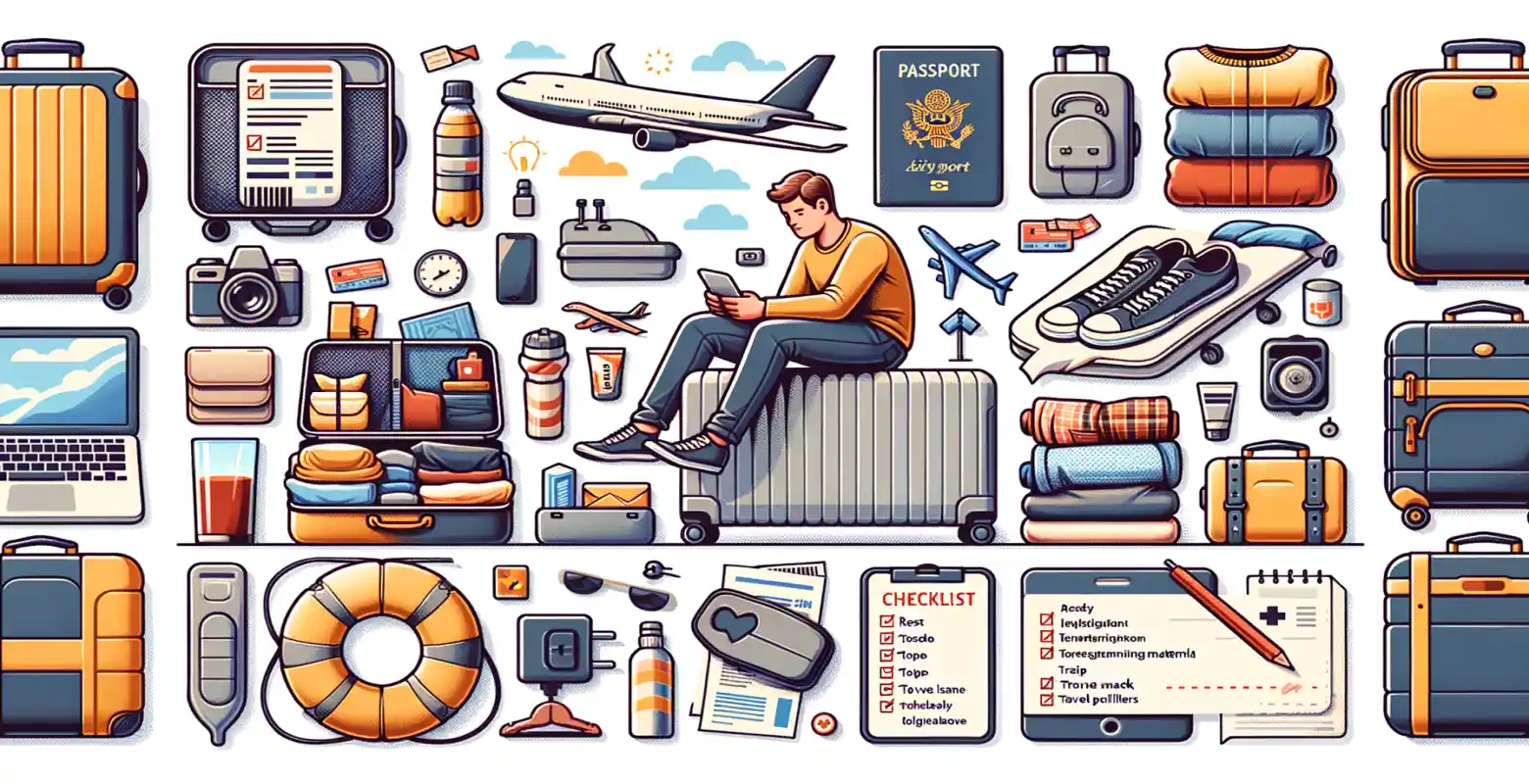How to prepare for a long flight?
Introduction
Planning a long flight can be both exciting and stressful. Whether you are traveling for business or leisure, preparing for a long plane journey is crucial to ensure comfort and a stress-free experience. In today's world where air travel is more accessible than ever before, understanding how to best prepare for a long flight is not only practical but also necessary. In this article, we will discuss how to effectively prepare for a long plane journey to avoid discomfort and enjoy the trip.
Flight Preparation: What to Pack
To ensure comfort during a long flight, it is important to pack your carry-on luggage appropriately. What should you include in it? First and foremost, it's worth bringing a travel pillow and blanket to aid in comfortable rest. Noise-canceling headphones are another essential item, especially if you value silence or want to watch a movie.
Don't forget about toiletries in small containers, such as moisturizer, lip balm, and refreshing wipes. The air in the airplane cabin is dry, so skin hydration is particularly important. When it comes to electronics, make sure your devices are charged and pack power banks. Additionally, bring a book or e-reader to help pass the time.
Meal Planning and Hydration
During long flights, it is important to maintain proper hydration. The cabin air is dry, which can lead to dehydration. It is recommended to drink at least one glass of water per hour of the flight. Avoid alcohol and excessive coffee, as they can further dehydrate the body.
Regarding meals, some airlines offer the option to choose special meals, such as vegetarian or gluten-free. It's worth taking advantage of this to ensure you receive a meal that fits your dietary preferences. It's also a good idea to pack healthy snacks like nuts or dried fruits, which can come in handy if you feel hungry between meals served on board.
Maintaining Physical Comfort
Sitting in one position for a long time can be tiring, so it's important to move around regularly. It's recommended to stand up every hour, walk around the cabin, and perform simple stretching exercises. This helps improve circulation and prevents deep vein thrombosis, which is a risk during prolonged sitting.
Clothing for a long flight should be comfortable and loose. Layered clothing allows you to adjust to the changing temperatures on the plane. It's also a good idea to have compression socks, which can help improve blood circulation.
Dealing with Jet Lag
Jet lag, fatigue resulting from a time difference, is a common issue during long flights across multiple time zones. To minimize its effects, it is recommended to gradually adjust your biological clock to the destination time. A few days before the trip, you can start shifting your sleep and meal times to align with the destination time.
Upon arrival, it's advisable to quickly adapt to the local time, for example, by spending time outdoors and avoiding daytime naps. Sunlight is a natural regulator of the biological clock, so spending time outside can help you adjust to the new daily rhythm more quickly.
Managing Stress and Fear of Flying
For many people, flying can be associated with fear and stress. Mental preparation before the flight can help cope with these emotions. Relaxation techniques such as meditation or deep breathing can be extremely helpful.
It's also beneficial to engage in activities that relax you, such as listening to music or reading a book. If the fear of flying is strong, consider consulting a therapist or using calming medications, always after consulting a doctor.
Summary
Long flights can be a challenge, but proper preparation can significantly improve the travel experience. From packing your luggage correctly, to staying hydrated and eating healthily, to managing stress and fear - each of these elements is important to make the journey more enjoyable. Following the above tips will not only help you survive a long flight but also enjoy it and arrive at your destination in good shape.






Number of comments: 0